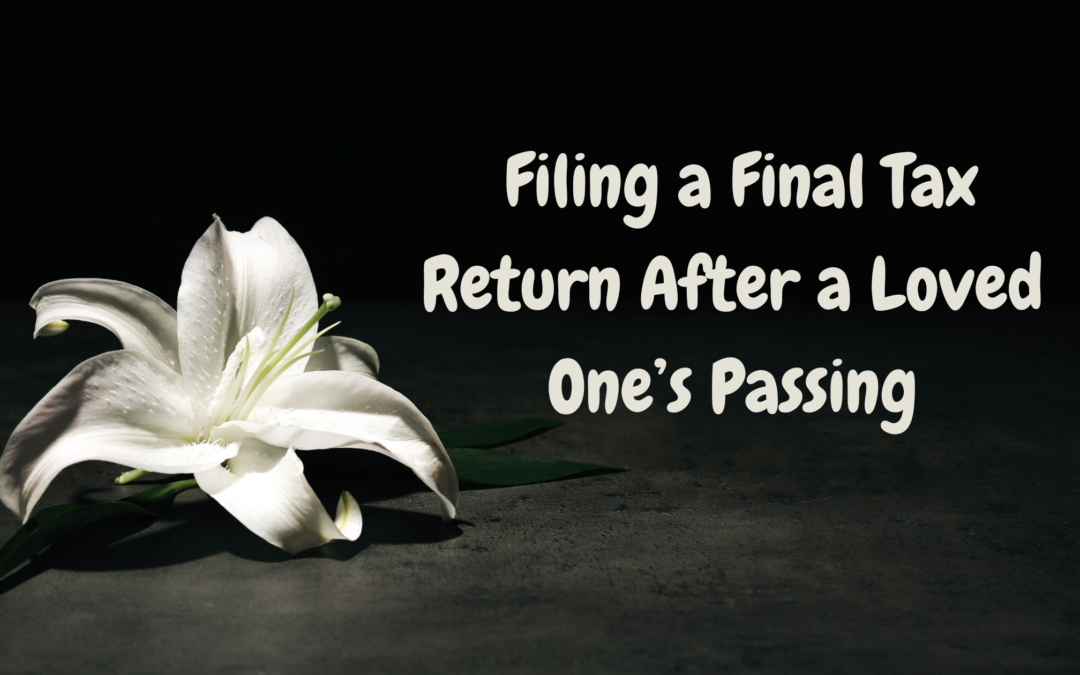Losing a loved one is difficult, and managing their financial affairs can feel overwhelming. If you are the executor of their estate, one of your responsibilities is filing their final income tax return.
The IRS requires a tax return for the year of the person’s death, and state tax rules typically follow the same guidelines. If your spouse passed away, you are still considered married for that tax year and can file jointly or separately. If you remarry before the year ends, your late spouse’s return must be filed as “Married Filing Separately.” For an unmarried individual, the return is usually filed as “Single,” though “Head of Household” may still apply in certain cases.
As a surviving spouse, you may qualify for “Qualifying Widow(er)” status for up to two years, allowing you to use joint tax rates and potentially lower your tax liability. For example, if your spouse passed away in 2024, you can still file using this status in 2025 and 2026. After that, you must file as “Single” or “Head of Household” if eligible.
Failing to file a required tax return can lead to IRS penalties. If taxes are owed, the IRS may seek payment from the estate or even heirs. In some cases, they can place a lien on estate assets and charge penalties and interest. If a refund is due, the government will withhold it until the return is filed.
If more time is needed, an automatic tax extension is available, but estate tax matters may also require attention. Seeking professional guidance can help prevent costly mistakes. A CPA can ensure that the final return is filed correctly, giving you peace of mind during a challenging time.
